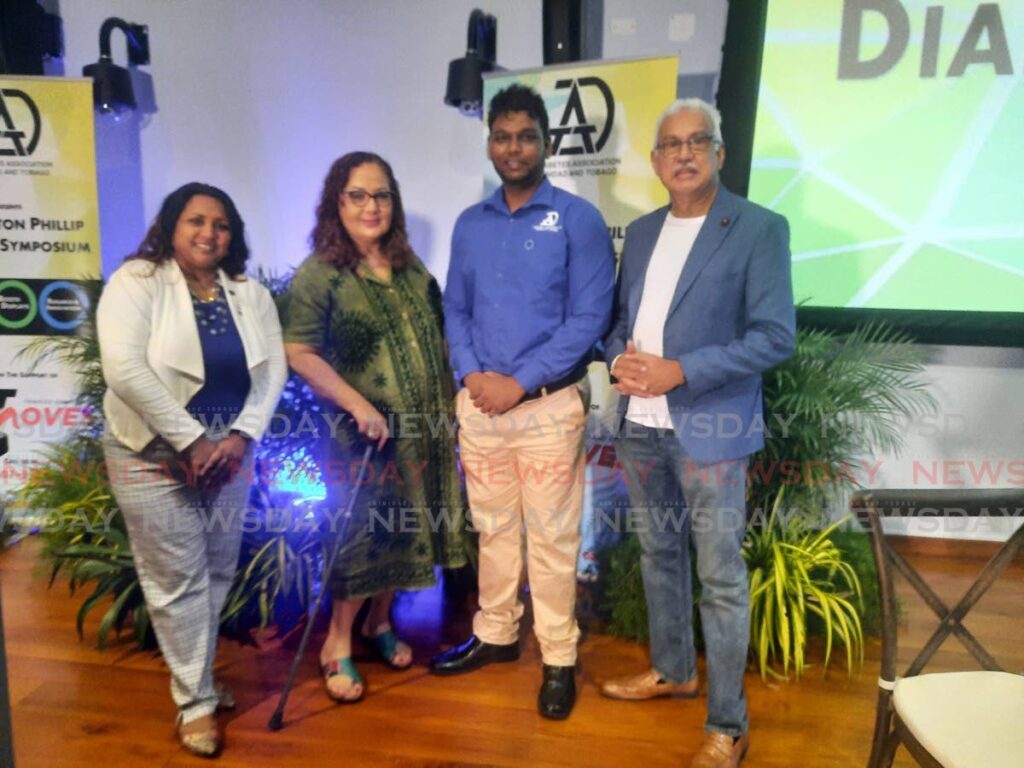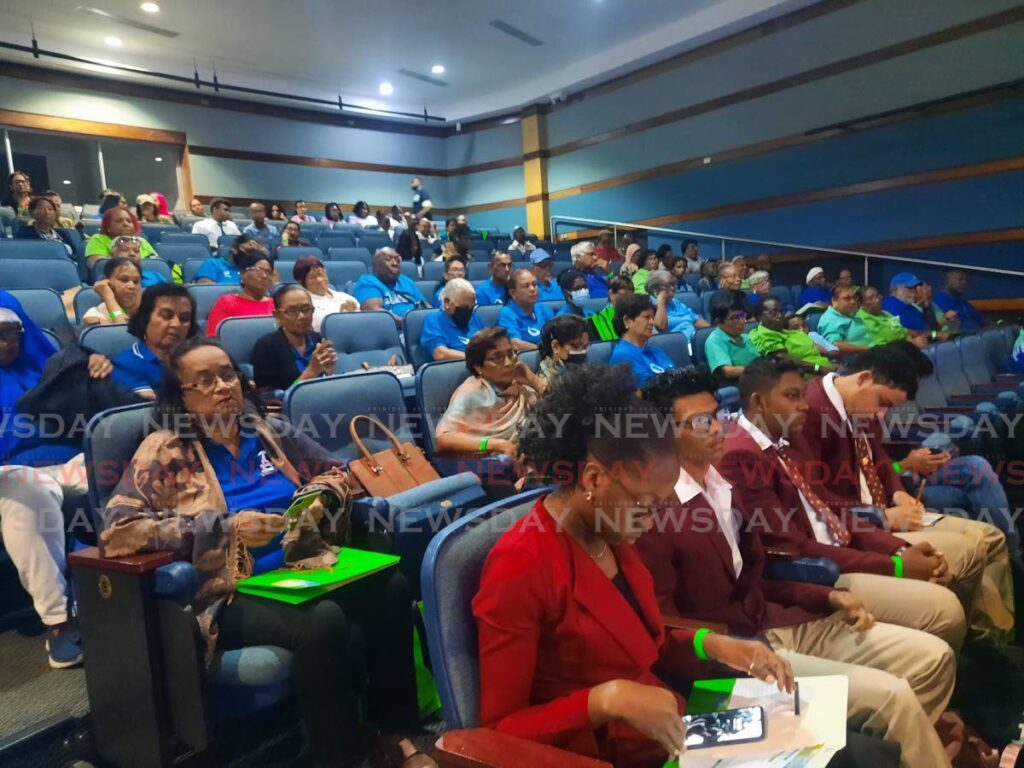Health Minister: Diabetics not changing lifestyles, taking medication

Trinidad and Tobago has a 15 per cent incidence of diabetes, higher than the global average of ten per cent.
One of the major challenges of the Ministry of Health is to get people with diabetes to make the necessary lifestyle changes and take the medication it provides to reduce the disease's impact on their lives, says Health Minister Terrence Deyalsingh.
He was speaking at the opening of the Diabetes Association of TT’s (DATT) Carlton Phillips Diabetes Symposium at the Teaching and Learning Auditorium at the UWI, St Augustine Campus on Saturday.
His audience comprised health practitioners, students and members of the Diabetes Association from Penal, Erin, Princes Town, Sangre Grande, Tobago, San Fernando, Gasparillo, Point Fortin and other areas
Deyalsingh told them he had Type 2 diabetes, a common condition that causes the level of sugar (glucose) in the blood to become too high.
He said he made changes to his life to help him manage the disease.
"I stopped drinking sugar in my coffee, I can stop drinking Coca-Cola and Pepsi, and I can stop eating a tumbler of ice cream every Sunday."
But he lamented, "Not everyone has it in them to make the changes.”
He said the Health Ministry spends millions to provide drugs, but people were not taking them.
One person said as a young Type 2 diabetic, she had experienced a lot of stigma around having diabetes, and this had affected her mental health.
“I’ve had nurses at health centres ask me, ‘What did you do to make yourself diabetic so young?’ and, ‘Do you want to give yourself a heart attack or stroke?’ and the language used brings this sense of huge guilt and shame. I need for you to advocate for healthcare workers to be aware of the language they use."
Deyalsingh said this was an important point, as he had met people who felt guilty about even telling their families.
Another audience member said there was a need for education in schools and religious institutions, which Deyalsingh said was already being done.

He said the problem was a global issue, with people being split into two categories: those with health-seeking behaviour and those who don’t seek health.
Lisa Roberts said in her clinical practice, diabetics with burnout and depression could not find psychologists to help them manage these conditions.
Deyalsingh said the public health system could not accommodate 10,000 people seeking mental wellness, and referred her to the ministry’s FindCareTT website.
Another participant said more education was needed about the drugs and their side effects, as sometimes patients did not understand what the prescribed medication did.
An audience member said she would like the minister to advocate for a work-from-home policy.
“The hours we spend in traffic going to and coming from work is time we could be spending exercising or cooking a proper meal, instead of grabbing Crix or an overly sweet granola bar.
“Part of the issue with taking medication consistently is we fool ourselves into thinking that the lifestyle changes alone mean we don’t need the medication, and then we fall out of the habit of taking it.”
Deyalsingh asked why diabetics continued to drink Coca-Cola, Pepsi, and over-sweetened homemade juice if they knew it was bad for them, instead of water. The audience unanimously agreed sugar made them feel good.
Dean of the Faculty of Science and Technology Dr Brian Cockburn said the taste for sweetness was one of the five tastes humans had evolved to help them survive, and so the body craved it, making it hard for people to give it up totally.
In his opening remarks, Cockburn commended the association for its advocacy, which he said was really needed for those living with diabetes and their families.
Association president Dr Andrew Dhanoo said the theme of Diabetes Awareness Month was Access to Diabetes Care: Know Your Risk, Know Your Response. He said people should know their non-modifiable risk factors, such as age, genetics and ethnicity, and try to control their modifiable factors, such as smoking, stress, eating habits and activity levels.
Pan-American Health Organization representative Dr Michelle Harris called on the ministry and the government to reduce the obesogenic environment, which contributed to people being obese, instead of putting the onus solely on the individual.
“Being obese is one of the key risk factors to having diabetes.
"I was glad to see that the Mt Hope Hospital was declared baby-friendly.
"We need to introduce front-of-package labelling to give people the information they need to make the right choices.
"I’m glad to hear there will be a debate about sugar taxation as part of the symposium, as this is another measure which can be implemented.”
Harris said 62 million people in the Americas are living with Type 2 diabetes, a figure triple what it was in 1980, and is estimated to reach 109 million by 2040. She said the prevalence is rising more rapidly in low and middle-income countries.
In 2019, with 1,418 deaths due to diabetes, she said, TT had the third-highest death rate in the region, followed by Mexico and Guyana.

Comments
"Health Minister: Diabetics not changing lifestyles, taking medication"